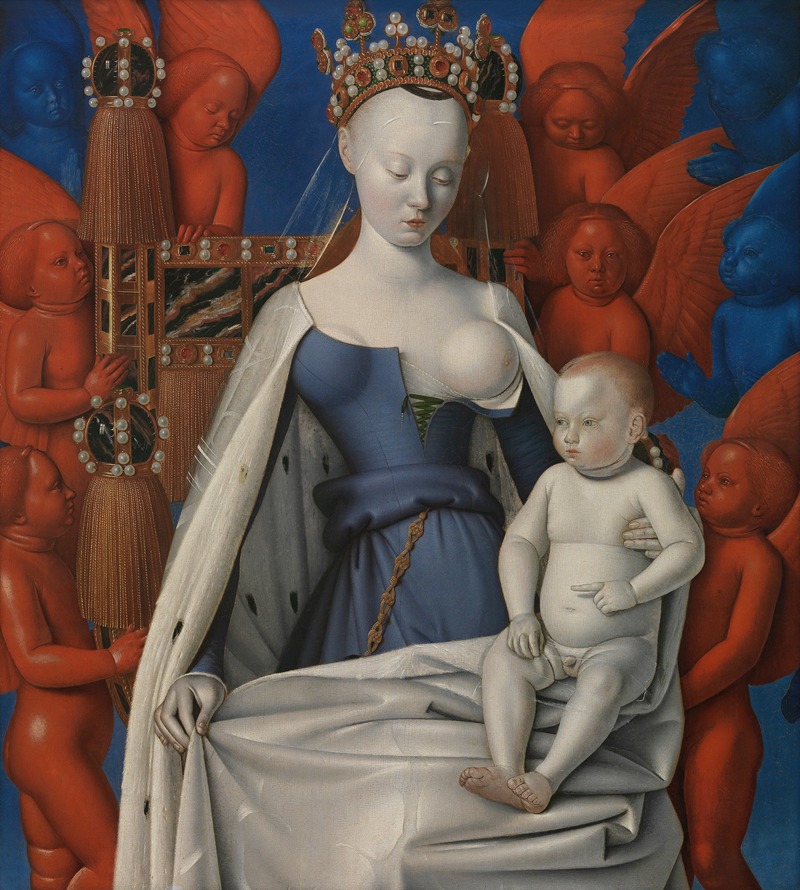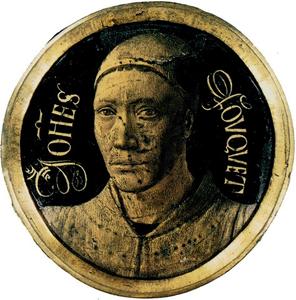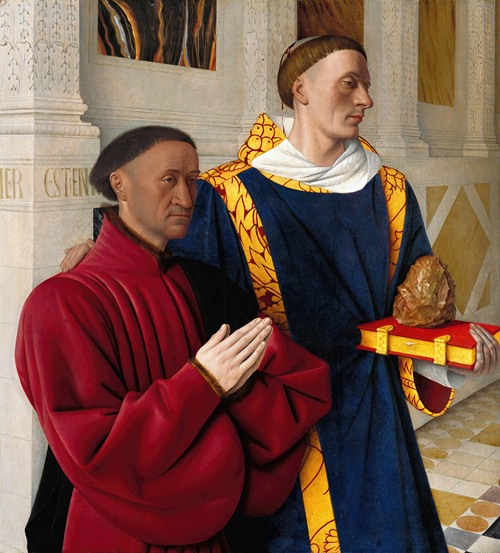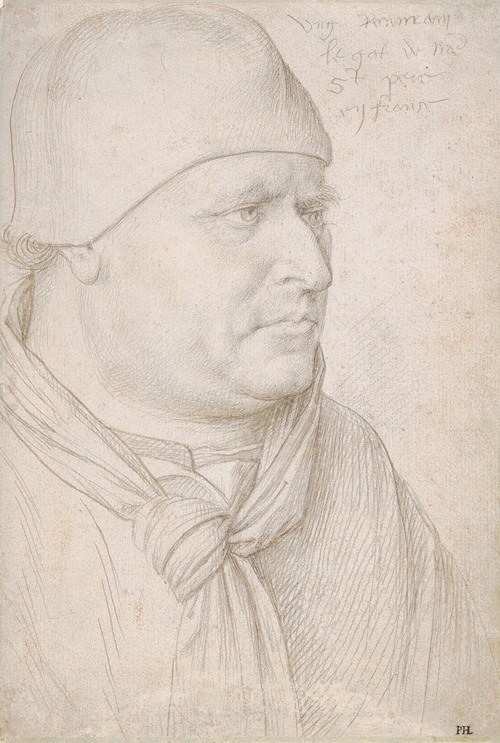

Jean (or Jehan) Fouquet was a French painter and miniaturist. A master of panel painting and manuscript illumination, and the apparent inventor of the portrait miniature, he is considered one of the most important painters from the period between the late Gothic and early Renaissance. He was the first French artist to travel to Italy and experience first-hand the early Italian Renaissance.
Little is known of Fouquet's early life and education. Though long assumed to have been an apprentice of the so-called Bedford Master of Paris it is now suggested that he may have studied under the Jouvenal Master in Nantes, whose works were formerly assumed to be early works by Fouquet. Sometime between 1445 and 1447 he travelled to Italy where he came under the influence of Roman Quattrocento artists such as Fra Angelico and Filarete. During the 1450s he began working at the French court, where he counted kings Charles VII and his successor Louis XI among his many patrons.
He was born in Tours. Little is known of his life, but it is certain that he was in Italy before 1447, when he executed a portrait of Pope Eugene IV, who died that year. The portrait survives only in copies from much later.
Upon his return to France, while retaining his purely French sentiment, he grafted the elements of the Tuscan style, which he had acquired during his period in Italy, upon the style of the Van Eycks, forming the basis of early 15th-century French art and becoming the founder of an important new school.
He worked for the French court, including Charles VII, the treasurer Étienne Chevalier, and the chancellor Guillaume Jouvenel des Ursins. Near the end of his career, he became court painter to Louis XI.
His work can be associated with the French court's attempt to solidify French national identity in the wake of its long struggle with England in the Hundred Years' War.
More Artworks by Jean Fouquet


